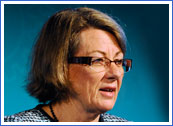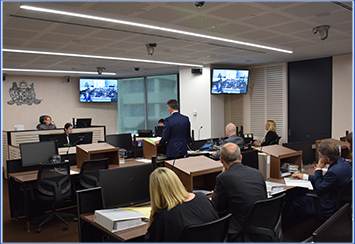
Corruption Matters - June 2015 | Issue 45
My first year as Commissioner

Since my last contribution to Corruption Matters, the work of the Commission has come under increasing scrutiny from public commentators, public officials and the courts. Much of the debate generated by the Commission’s proposed investigations over the last 12 months has centred upon the scope of the Commission’s jurisdiction.
In April this year, the High Court determined that the Commission lacks jurisdiction to investigate the conduct of persons (whether or not they are public officials) that adversely affects the functions of a public official, where that public official is unaware that he/she is being misled and there is no impropriety on the part of that public official.

This was a jurisdiction that the Commission had been exercising for 25 years and which allowed investigations into such conduct as collusive tendering, fraudulent invoicing and other fraudulent practices on the part of individuals who sought to benefit financially, often to the extent of millions of dollars, from contractual arrangements with public officials. The Commission had always taken the view that, if there was significant financial fraud perpetrated on one or more public officials, it was corrupt conduct because it adversely affected public administration.
Following the High Court’s decision, the NSW Government announced a review of the Independent Commission Against Corruption Act 1988 by the Hon A M Gleeson AC QC and Bruce McClintock SC. The Commission welcomes the opportunity to have its jurisdiction examined and clarified. Unfortunately, these events have precluded the delivery of reports into operations Credo and Spicer, and they have halted a number of other investigations that were underway.
Notwithstanding the prominence given to these issues in the public domain, the Commission has continued to carry out valuable corruption prevention work. There have been a number of public inquiries, including one into corrupt practices within the IT sector of the tertiary education industry and one into alleged corrupt practices within the Mine Subsidence Board. These inquiries expose poor procurement processes and administrative procedures within the public sector that invariably facilitate corrupt payments, inhibit competitive tender processes and waste valuable public resources.
These types of inquiries do not necessarily attract much public attention, nor does the educative work of the Corruption Prevention Division, which continues to engage in research and discussion with public officials with a view to minimising organisational corruption. These are all core activities of the Commission, which arguably have a greater long-term impact on ethical practices in public administration than the more high-profile matters that the Commission undertakes from time to time.
My first year has certainly been eventful. The Commission’s work inevitably gives rise to controversy – it would be an ineffective organisation if that were not so. The Commission does not and cannot shirk its responsibility to investigate allegations of serious corrupt conduct when it receives reliable information to that effect, no matter where that investigation might lead. The last year is proof of that commitment. I am confident that the next year will also demonstrate that pledge.